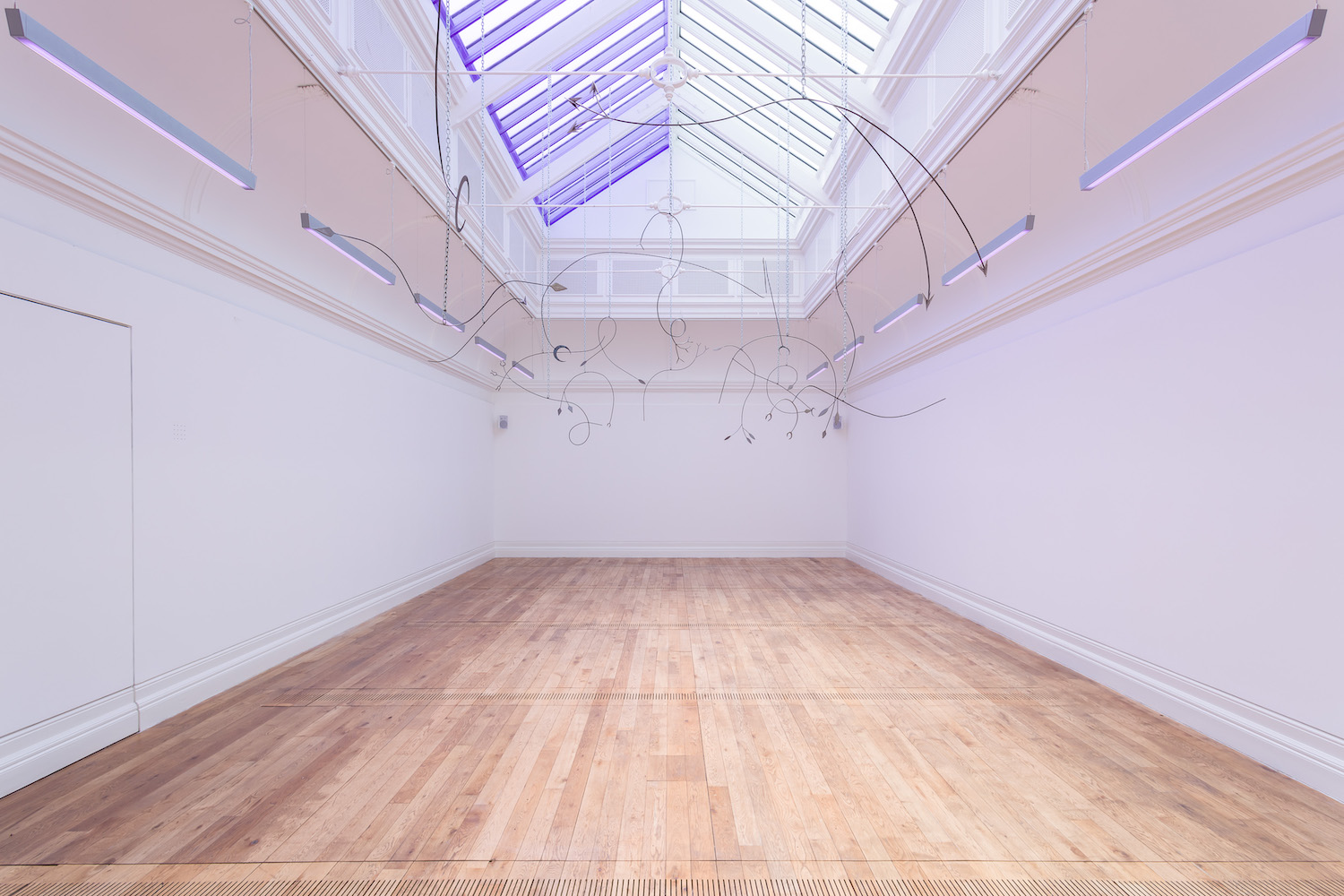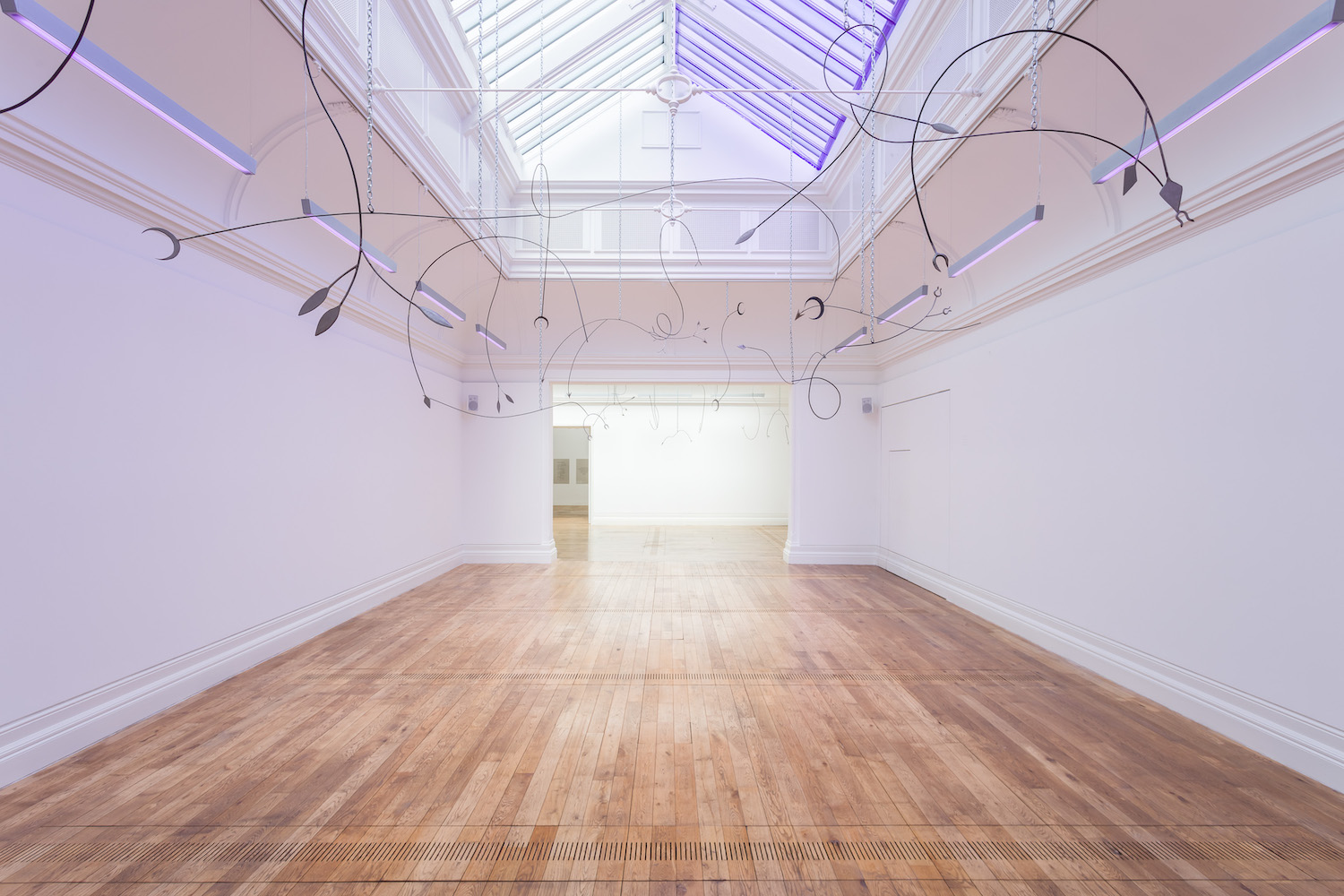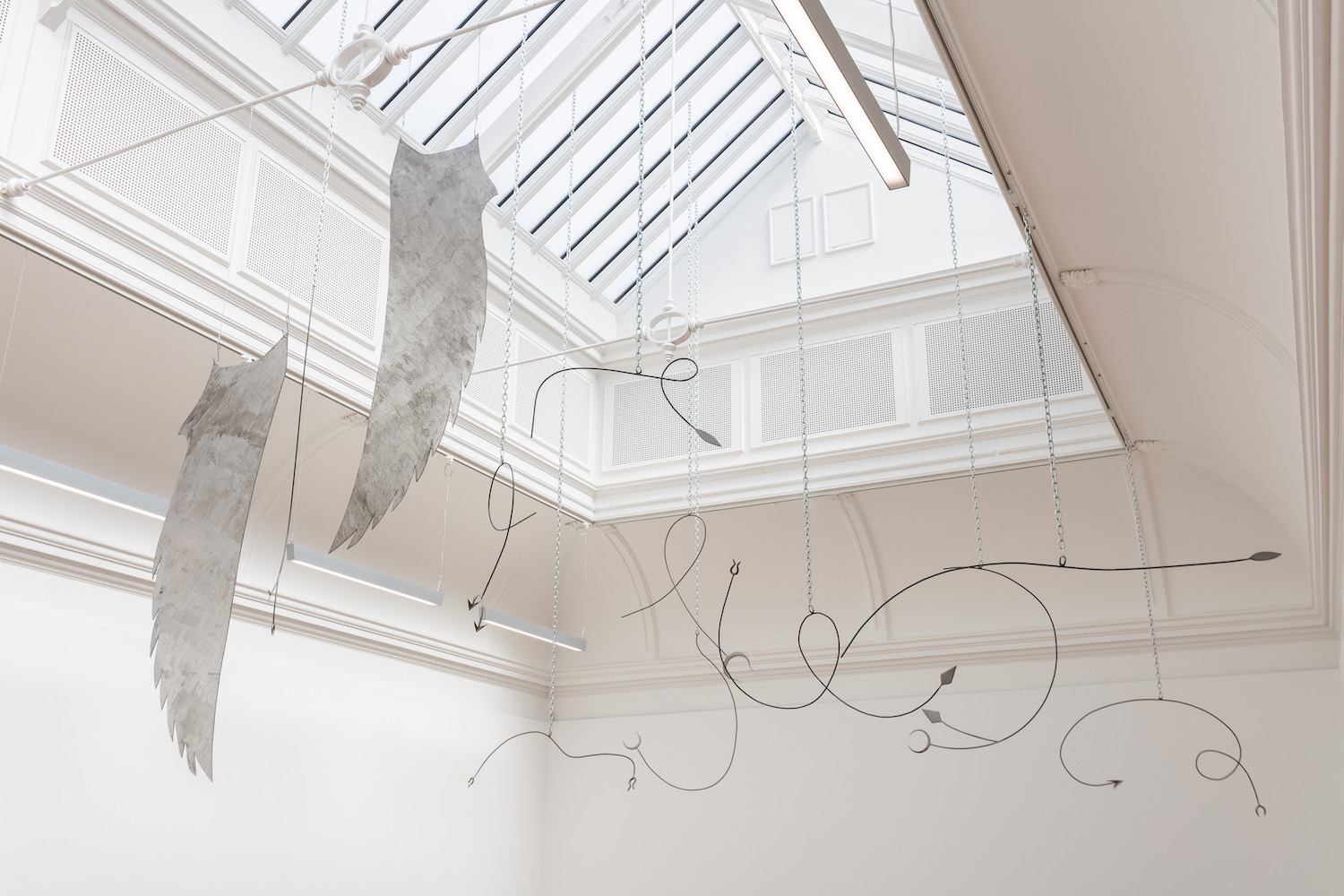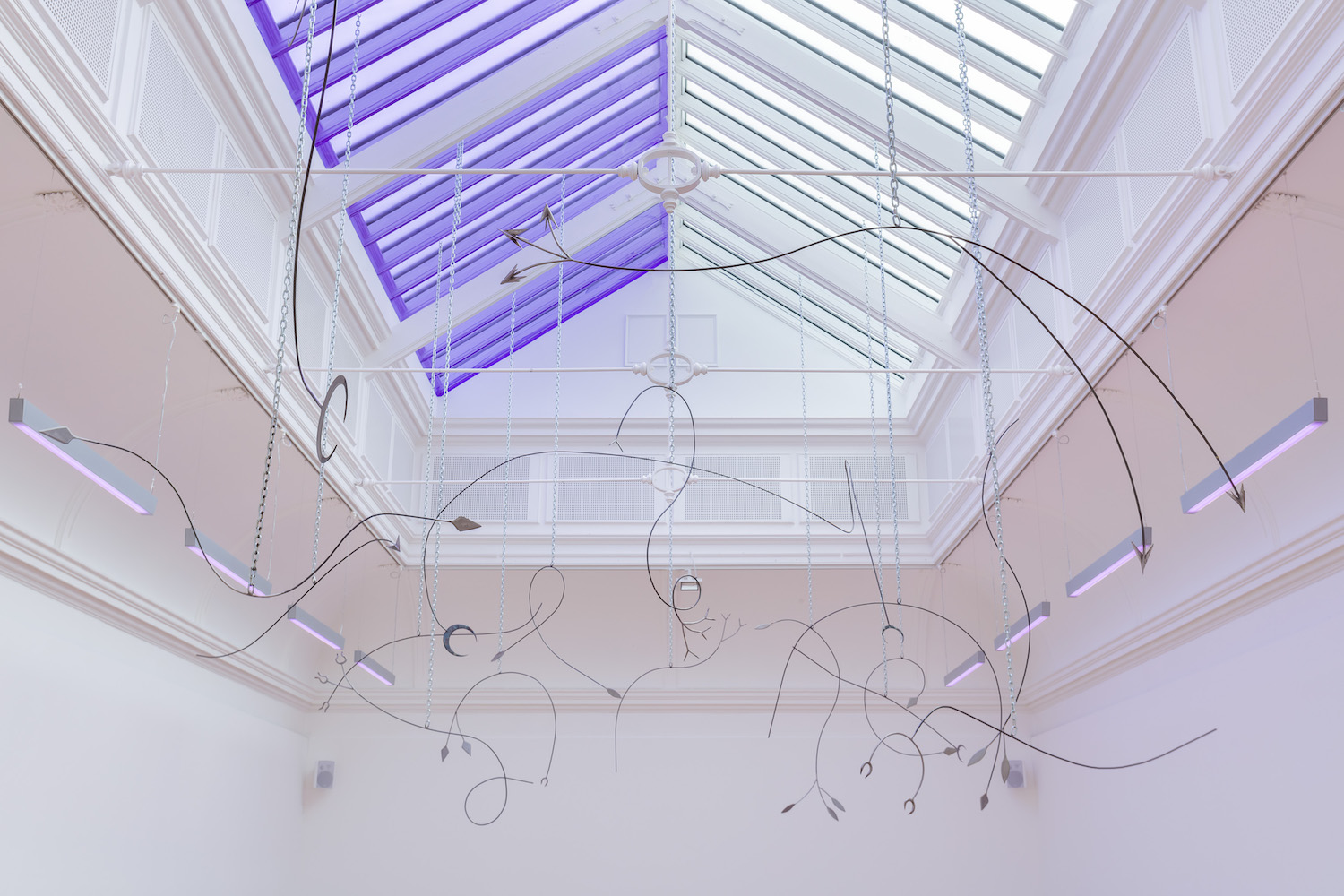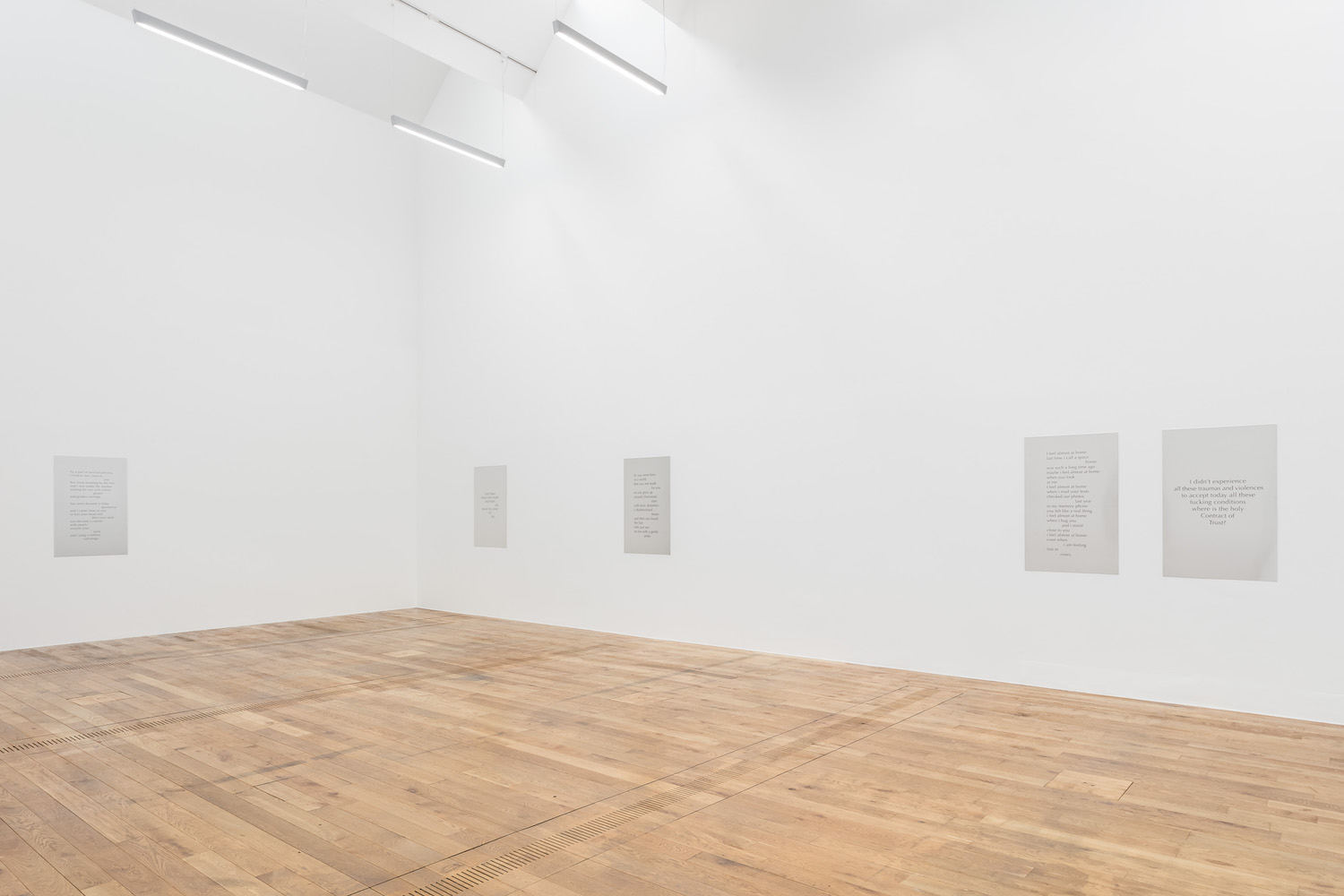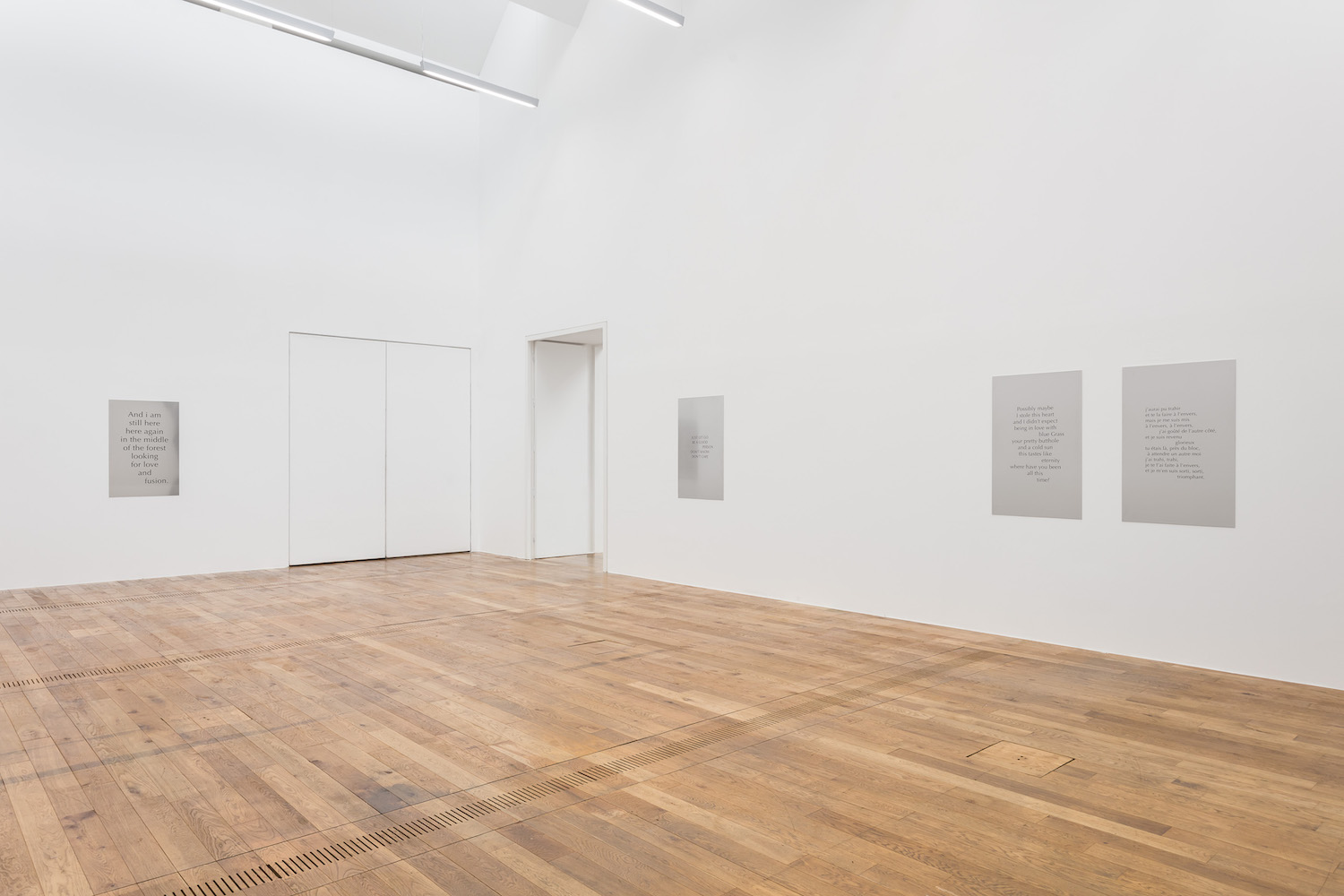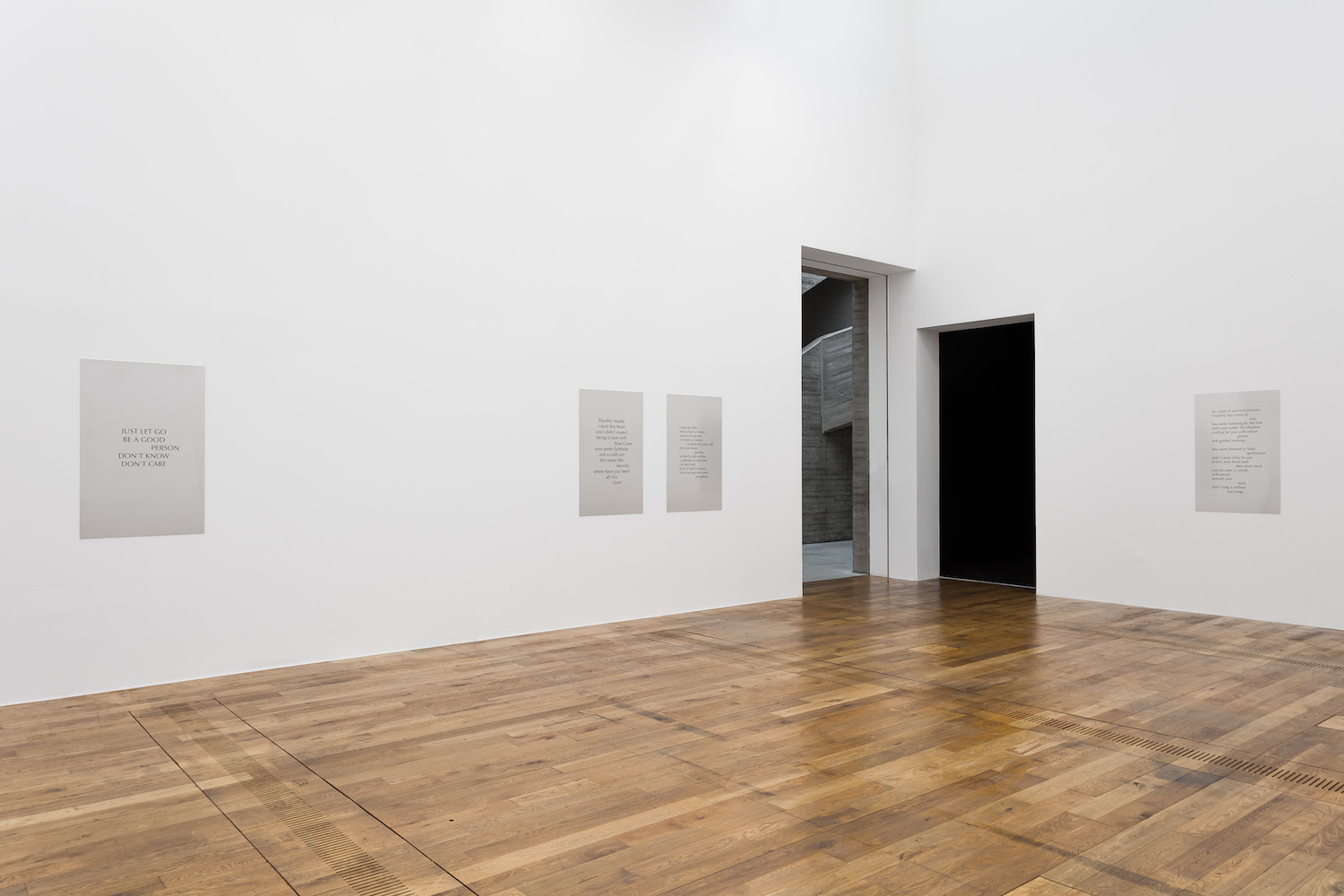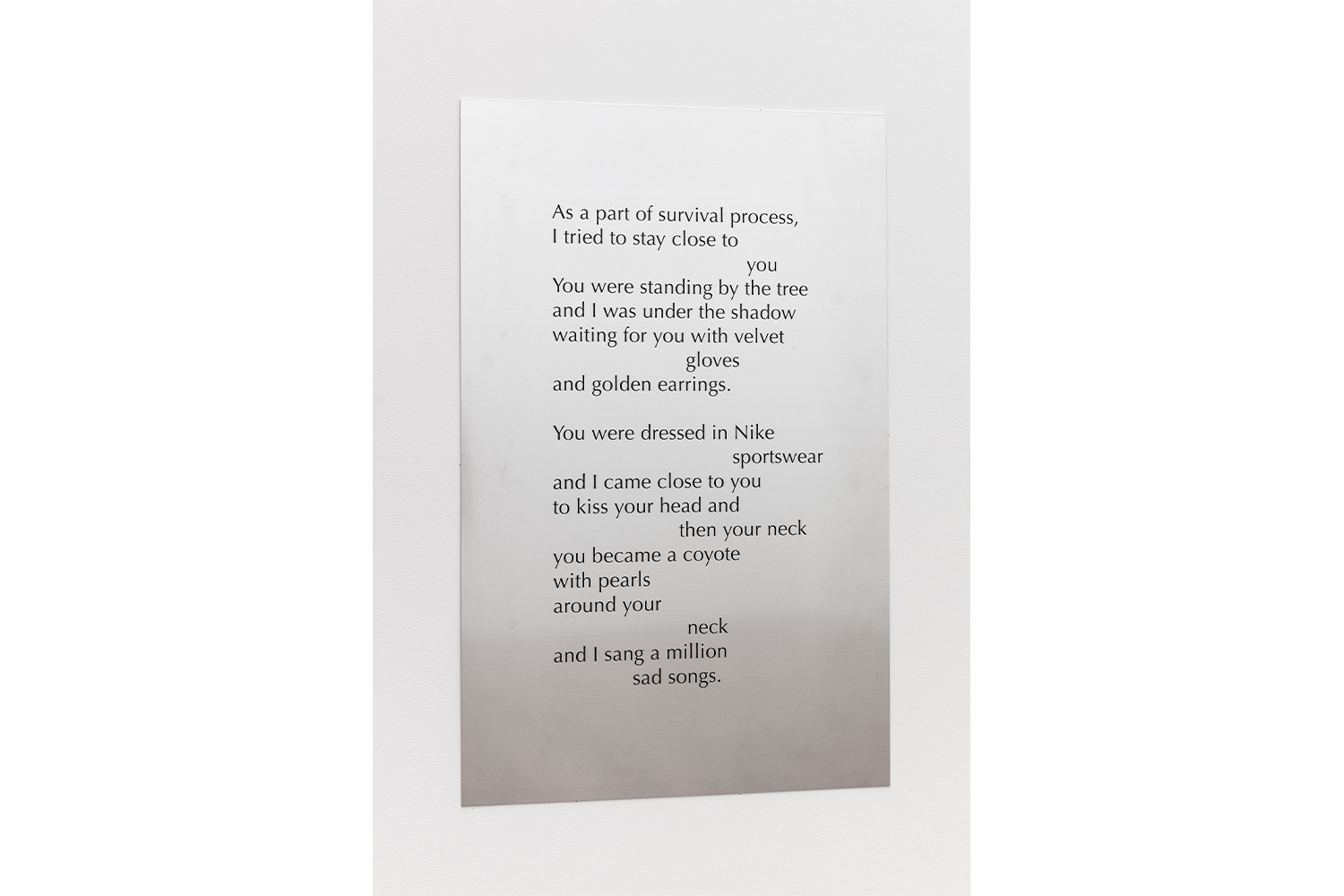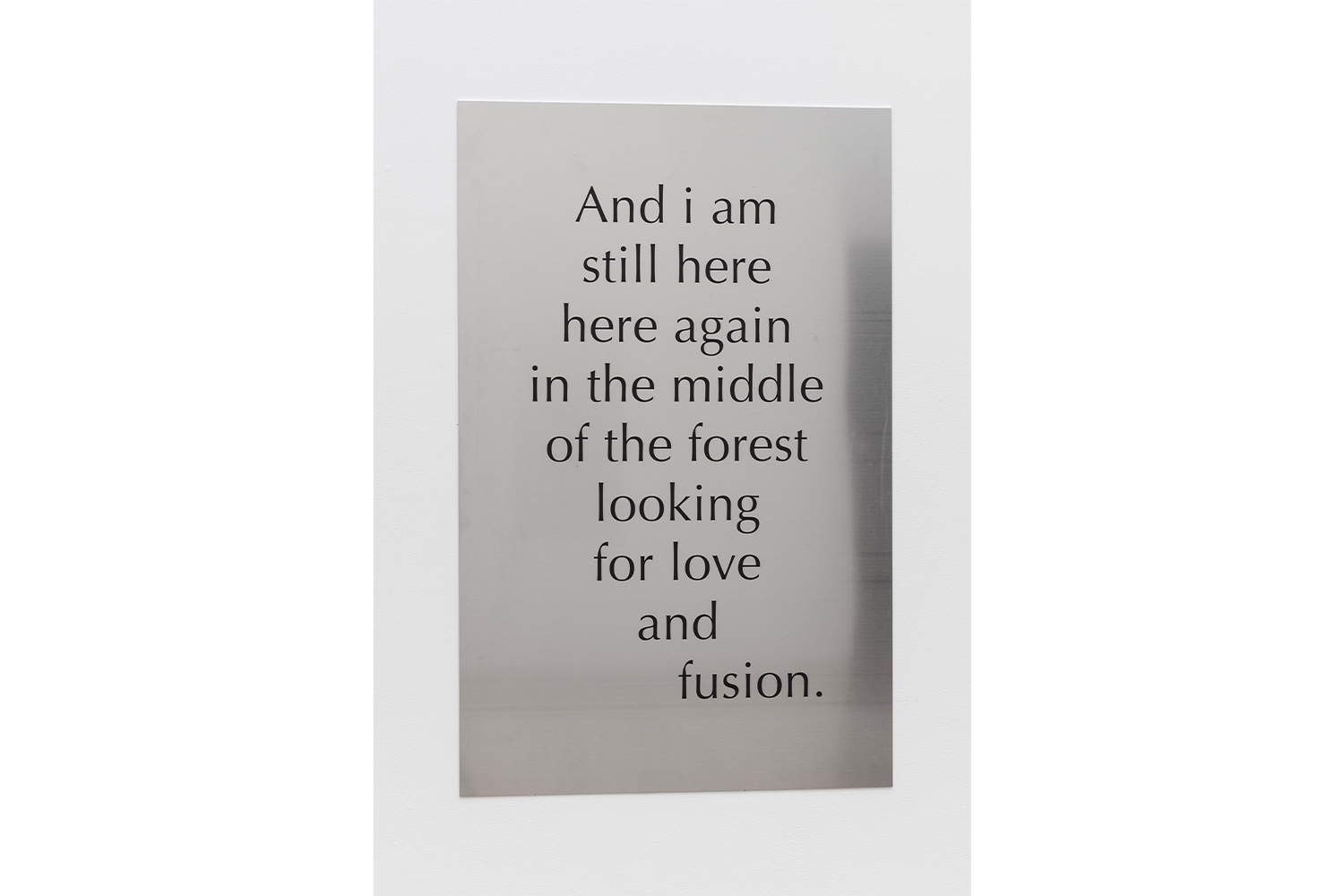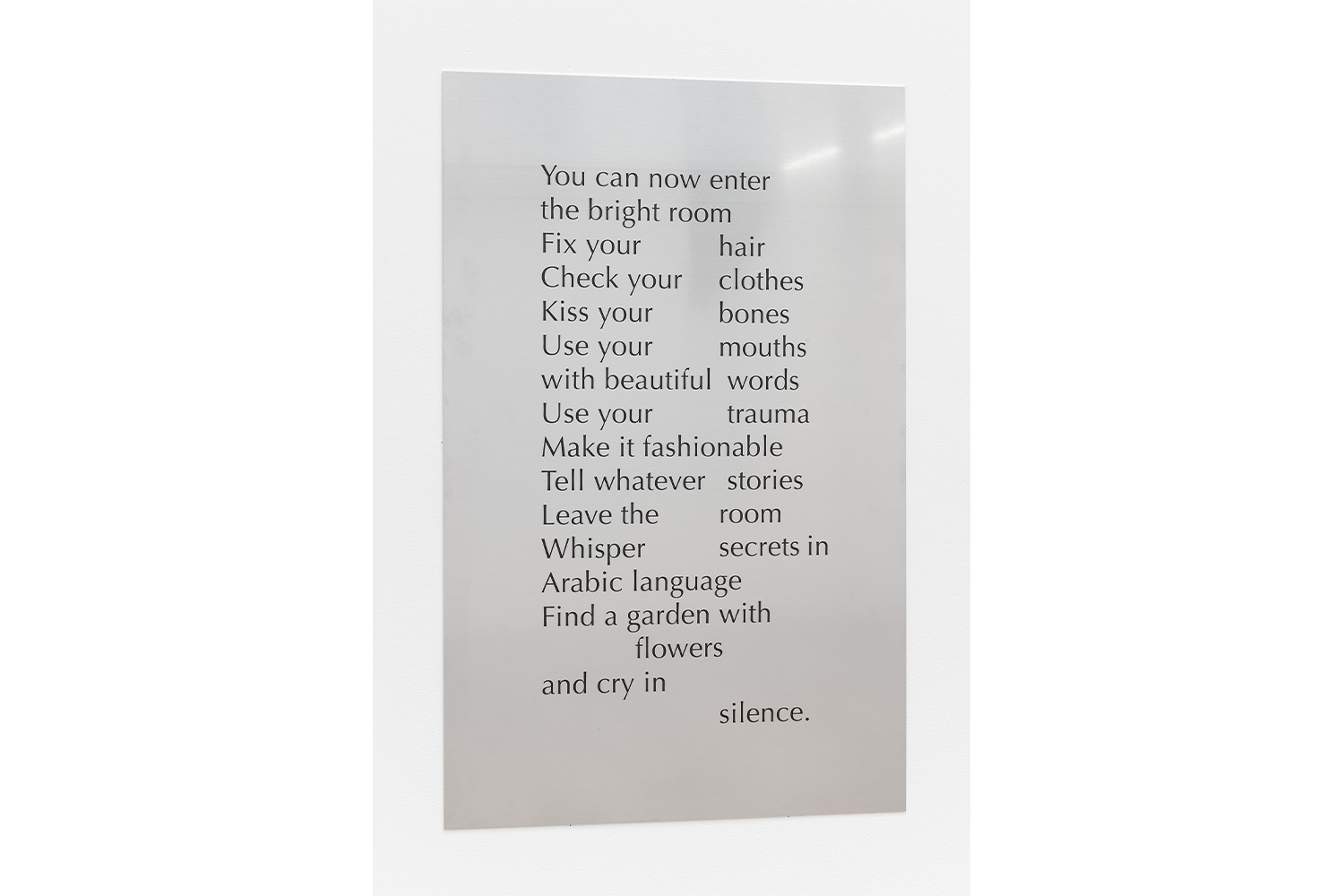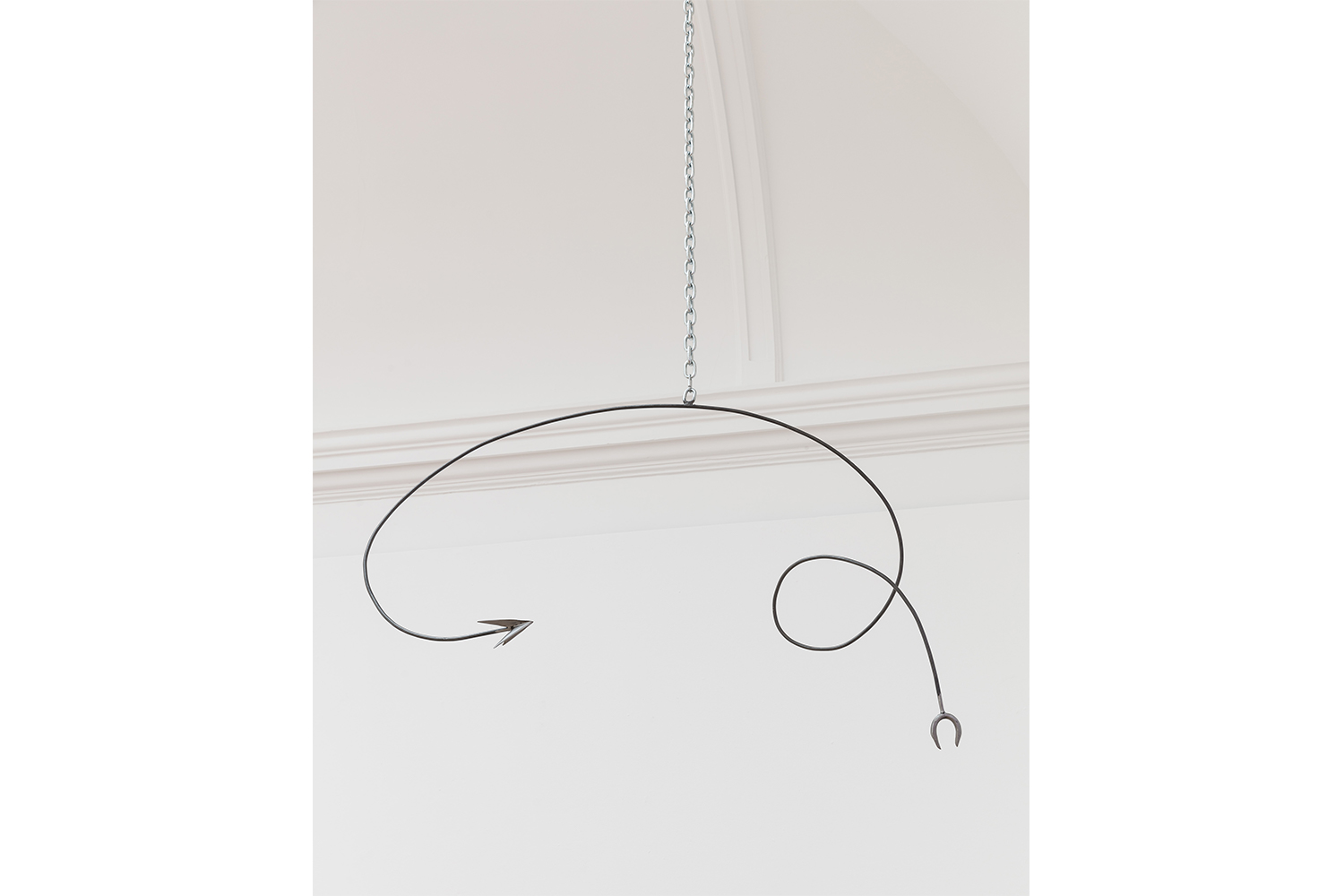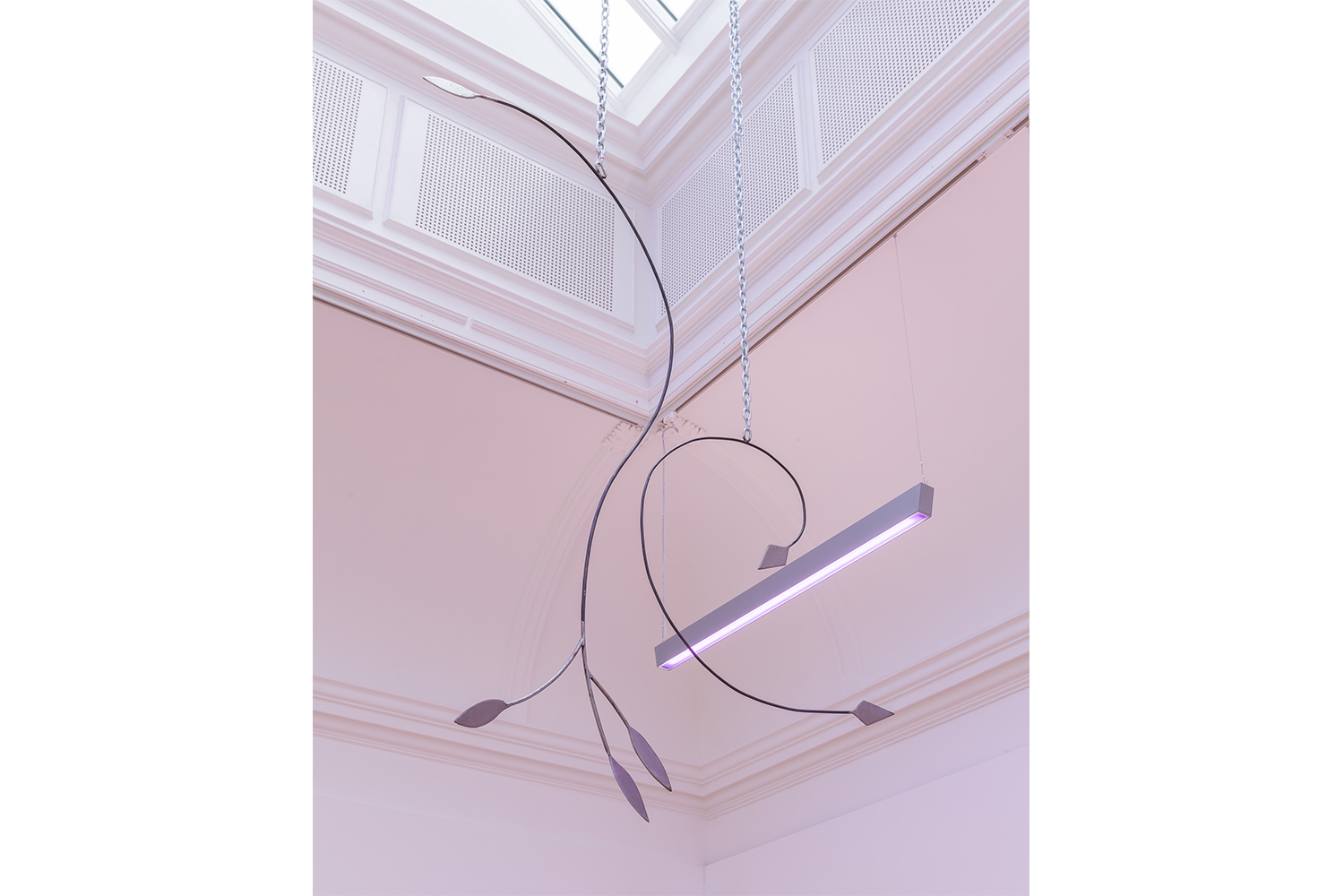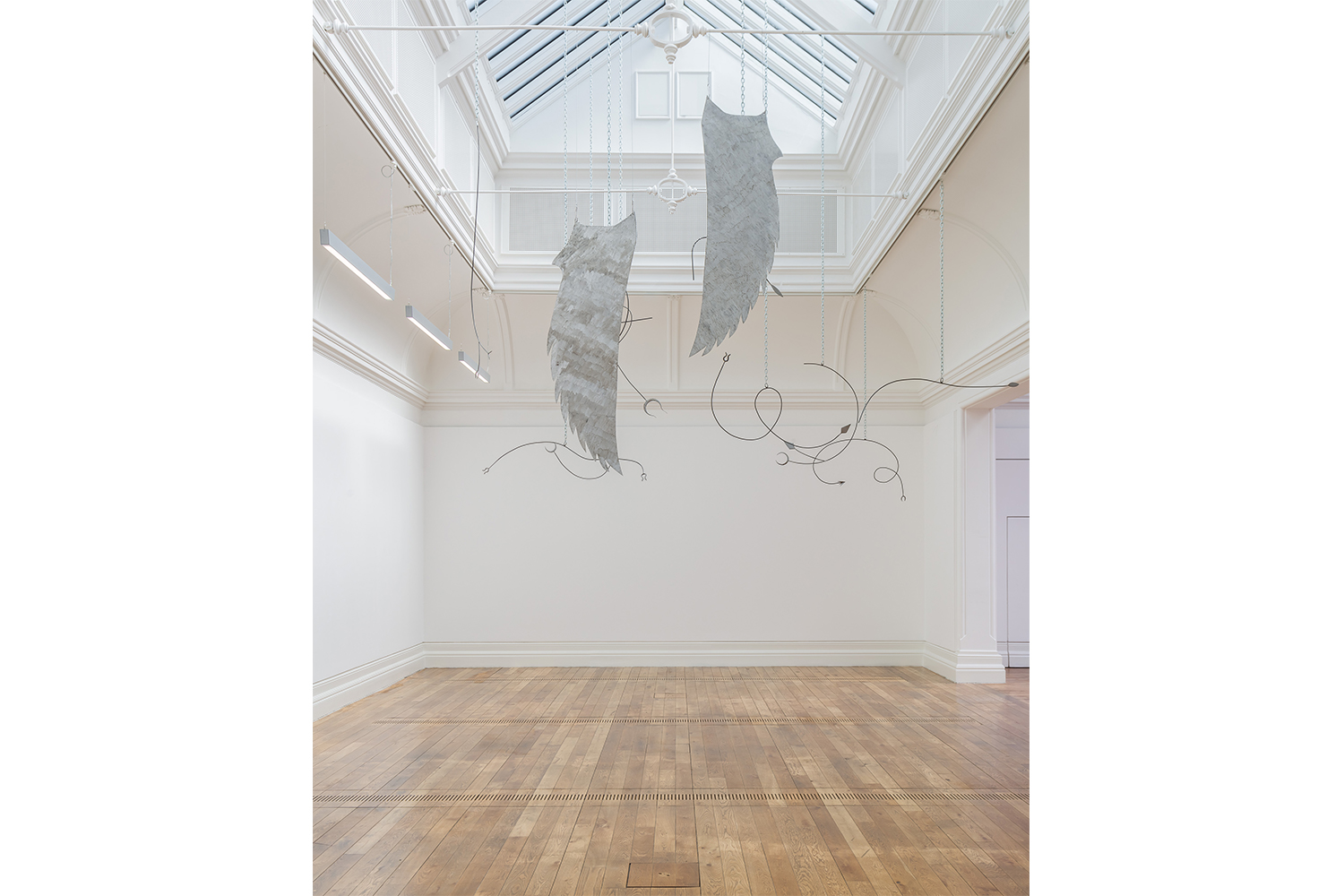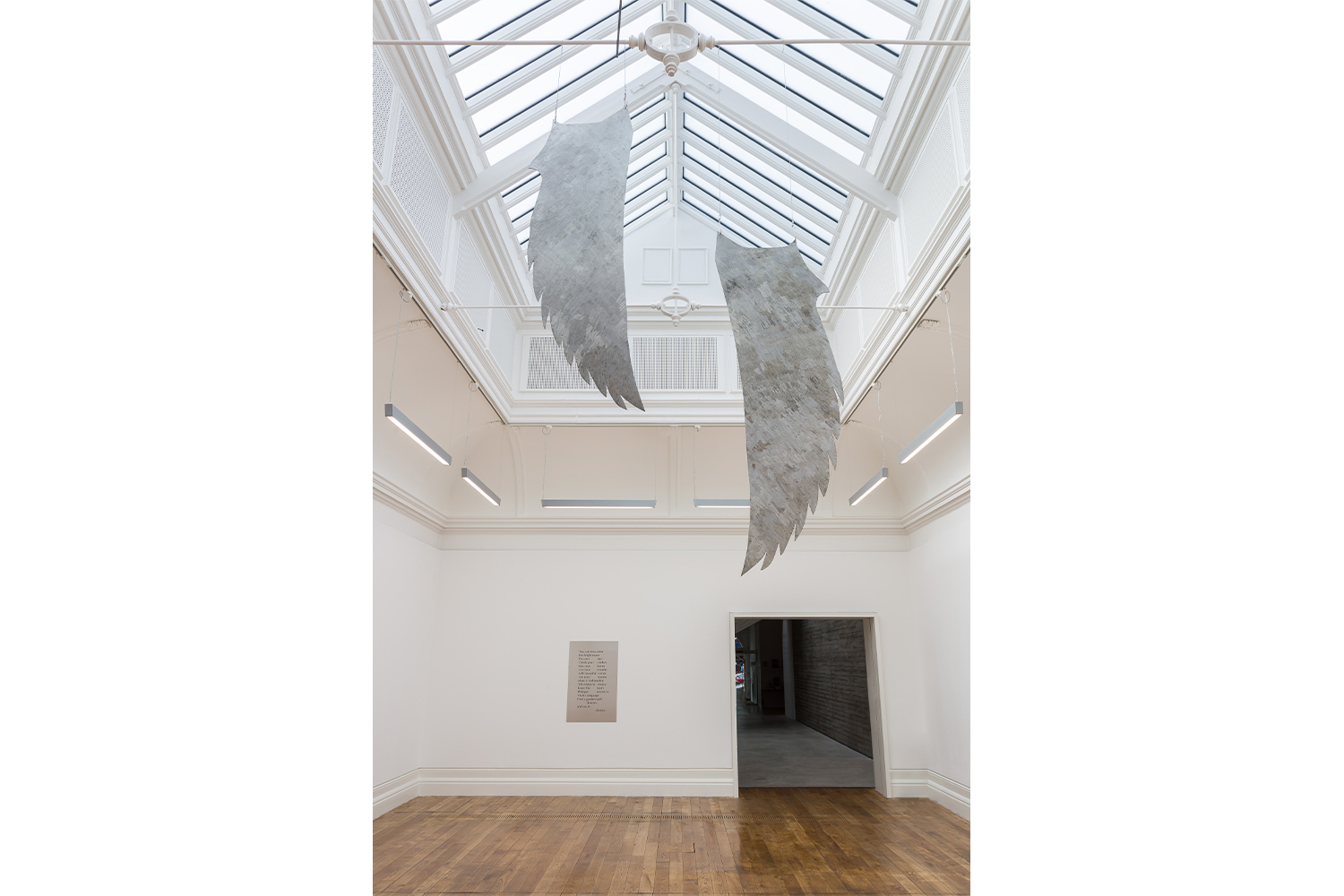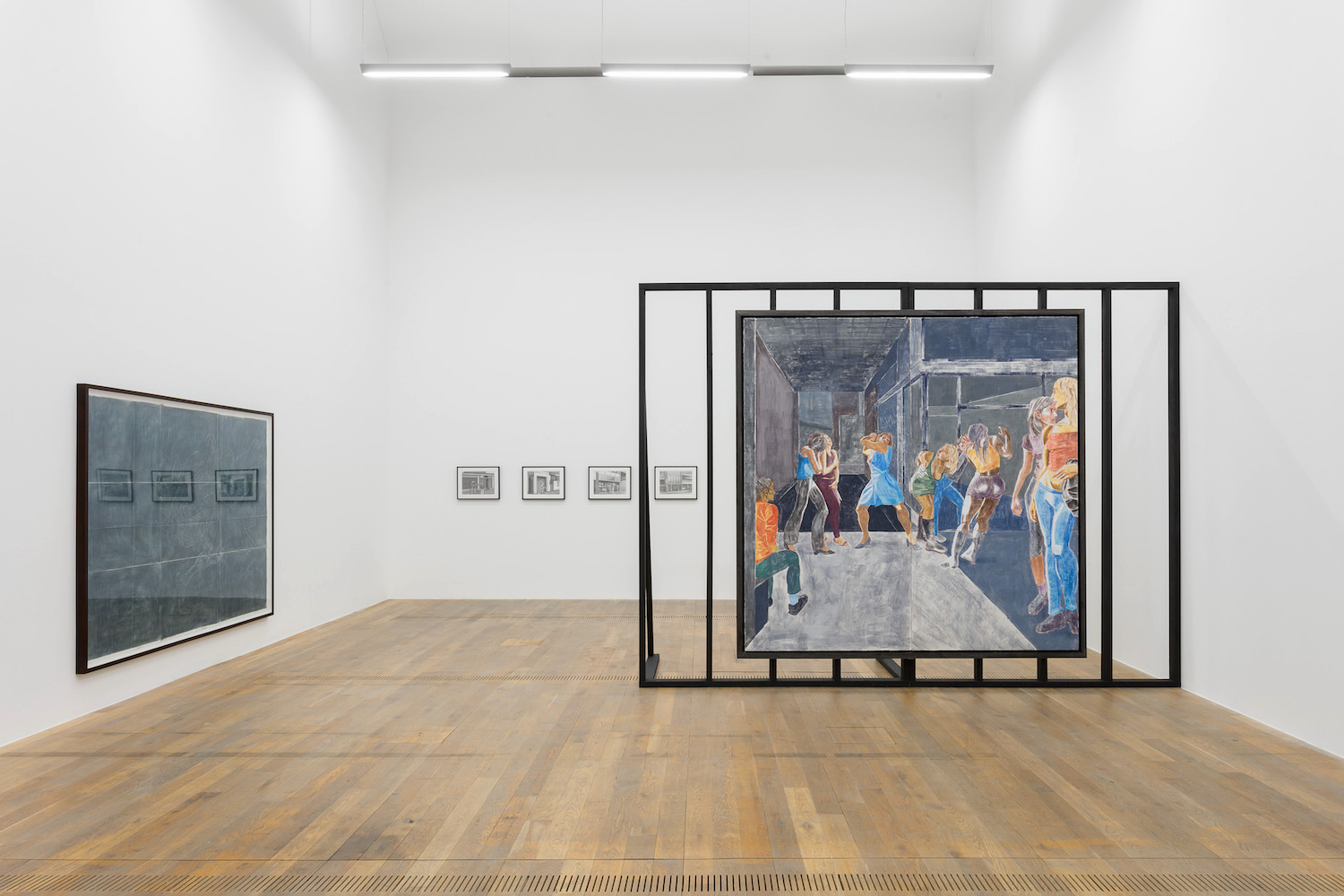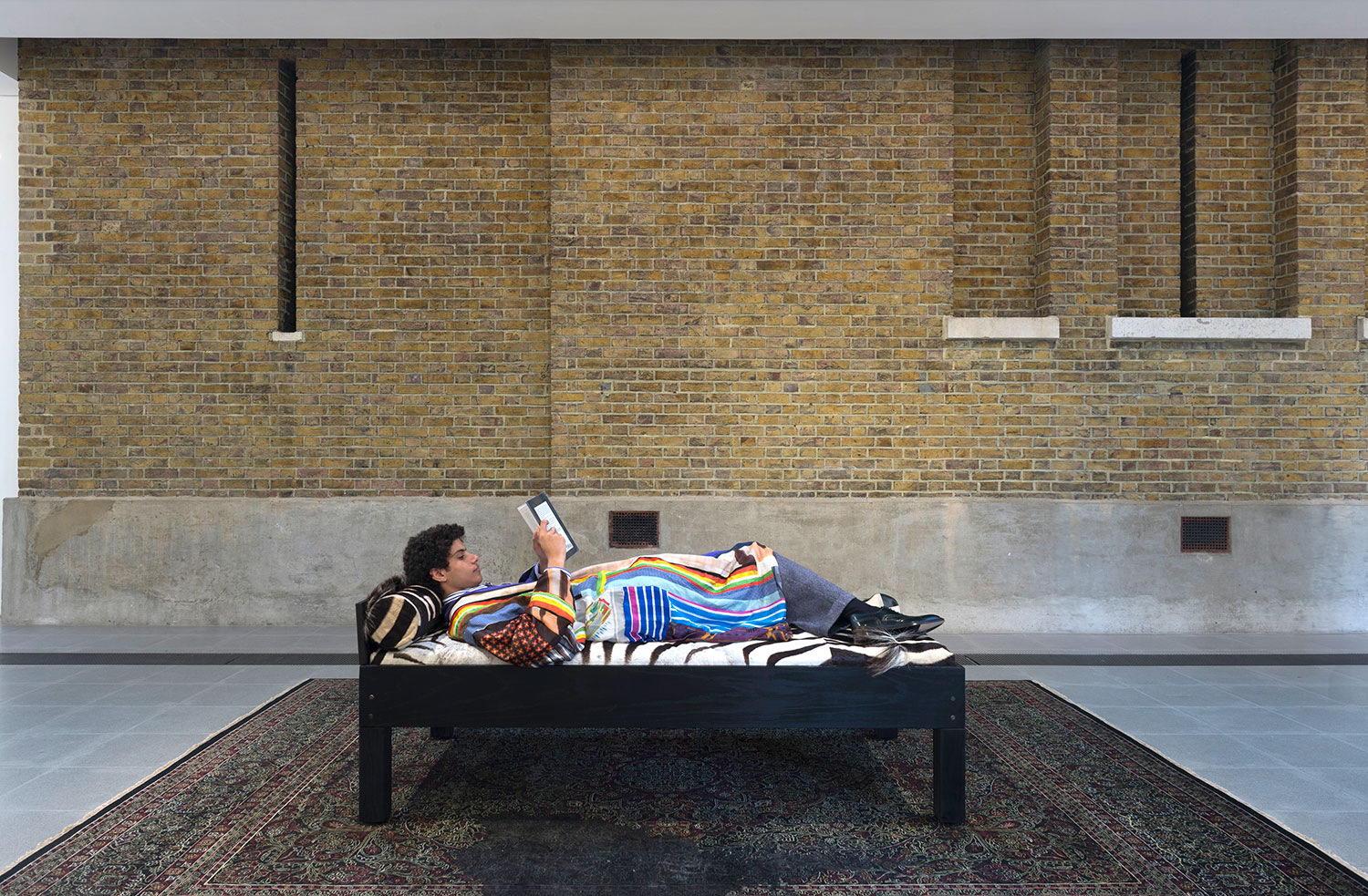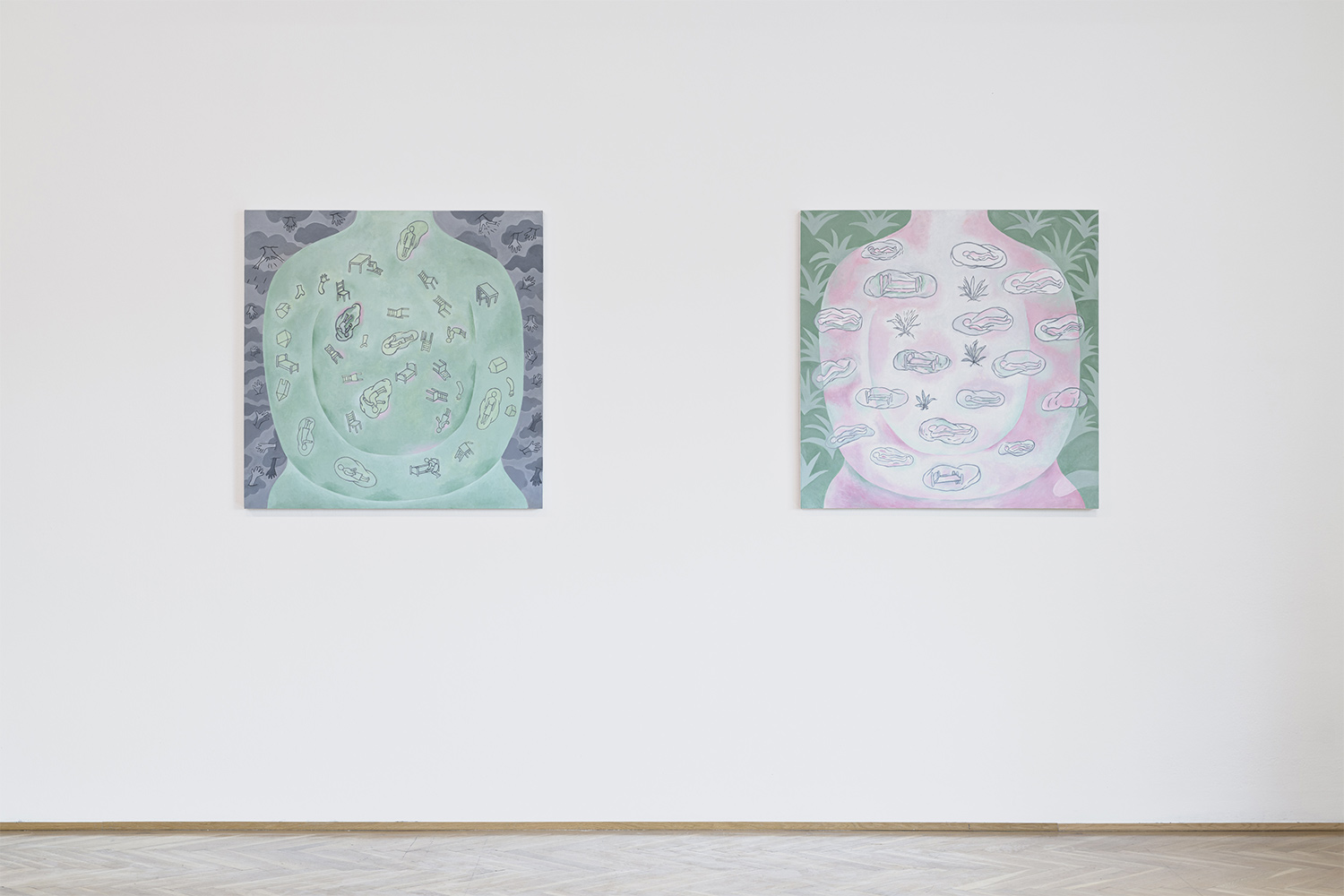Initially trained with a degree in literature, the French-Algerian artist Tarek Lakhrissi identifies as both an artist and poet, and the work is deeply rooted in the power of language. Each project stems from a piece of canonical writing, whereby Lakhrissi reimagines text as a weapon against political or social marginalisation, specifically within the queer community. This idea of language as defence bleeds into a reflection on contemporary queer identities, and self-defence as self-love.
The new commission at MOSTYN draws from both the song “My Immortal” by the 2000s American band Evanescence, and John Milton’s classic 1667 poem, “Paradise Lost,” to question the meaning of community—again, with a focus in particular on the queer community—and its stability, or conversely, vulnerability. (He also regularly references 1990s pop culture, citing subversive icons like the era’s TV heroines ‘Buffy the Vampire Slayer’ and ‘Xena: Warrior Princess,’ who both excelled at protecting themselves in the face of adversity, throughout his work.)
Comprised of film, sculpture, and text, the exhibition is presented as one singular installation spanning the gallery spaces, with the press release describing the project as a “battleground.” Indeed, much of Lakhrissi’s work is concerned with the theme of warfare, with violence appearing in descriptive language (i.e. text as a “weapon” / language as “defence”), allusions he makes (“warrior” princess Xena), and in the physical art object itself (sword as sculpture).
Here, Lakhrissi succeeds in creating a war of forces through the juxtaposition of tender poetry inscribed on metal plaques paired alongside sculptures of spears and angelic wings suspended from the ceiling. The plaques tell stories — “you were born into a world that was not made for you” / “so you grew up around charismatic stars with toxic dynamics”— that lament a traumatic past and evoke one’s empathy, while the object instead invokes a sense of momentum in an ability to self-defend.
Based on the Greek myth of Icarus, who died upon drawing closer to the sun, Gay Angel I and Gay Angel II (2021) seem to imply that the fight is futile. Elsewhere, Unfinished Sentence (2020) continues to rally; citing French feminist Monique Wittig’s 1969 novel, Les Guérillère, in which female insurrectionists combat a male army, the sculptural installation serves can be interpreted as an homage to endurance. All of these works are embedded in a sound piece of the opening themes to Buffy and Xena, in what becomes a fully-rounded, nuanced atmospheric meditation on tension in finding peace against internal and communal conflict.
In addition to his own poetry on view, “My Immortal” is packed chock-full with literary references, demonstrating Lakhrissi’s close alignment with language and the written word. Using the work of others as a springboard, he is able to cleverly produce his own careful commentary on love and the human condition—a desire to connect—through the lens of the queer community. Ultimately, “My Immortal” contemplates whether or not to keep pressing forward post-trauma and pain, and through this experience, one leaves Lakhrissi’s installation with the answer being a resounding yes.

